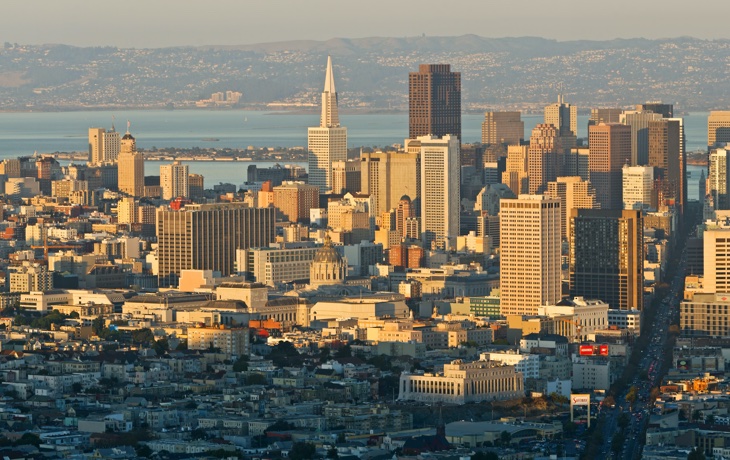Keep your go-bag packed and ready, even if you’re already bugged out
A man was trapped alone in the snowy Alaskan wilderness [PDF] for more than 20 days after his remote cabin burned down, and he had to drink his own… Ok, he didn’t have to do that, but he did have to make a shelter and keep a fire going constantly.
The thing that immediately struck me about his story is that he did not have a go-bag packed and ready to go. So when his cabin caught fire, he was frantically trying to pull supplies out with one hand while dumping snow with the other to put out the fire. It just goes to show: always have a go-bag ready, even if you’re already fully bugged out in the Alaskan wilds by yourself in the dead of winter.
There are more post-mortems on the many, many things this guy did wrong in this reddit thread.
Why Silicon Valley is pretending not to prep
This article at Jacobin is Exhibit A for why the whole “Silicon Valley prepper” scene appears to have died off in the past few years. It’s definitely not gone — we’re connected to a lot of these folks — but it has gone underground. And it has gone underground because of the sentiment expressed in this piece, which is the (false) narrative that techies don’t care about the impact their work has on the world because they’re making plans to ride out the apocalypse in style while the poor starve.
If we don’t rein him in and start transforming our society, Musk will drive us to climate apocalypse like any other billionaire. His vision of suburbs powered by solar roofs and home batteries does little to push us toward a more sustainable future. The future requires us to live closer together, in denser communities that allow us to commute by public transit, bicycle, and foot, rather than cars, but Musk will accept no alternative. Tesla’s solar technology and home batteries, rather, will enable what Kate Aronoff, Alyssa Battistoni, Daniel Aldana Cohen, and Thea Riofrancos have recently called grid defection: “resource-intensive solar separatism for the rich and the geographically lucky” who hide in their “affluent enclaves.”
The whole thing just goes on and on like this. It’s nuts, and it’s why tech people we know personally have recently discovered the importance of OPSEC. And we don’t blame them — nobody who’s engaged in rational, common-sense preparedness wants to be smeared as a supervillain.
New lithium-based battery tech promises 5X battery life
Another month, another exciting laboratory advance in energy storage that we’ll look back on in a few years and wonder, “what ever happened with that?”
A new lithium-sulphur battery with an ultra-high capacity could lead to drastically cheaper electric cars and grid energy storage.
Mahdokht Shaibani at Monash University in Melbourne, Australia, and her colleagues have developed a battery with a capacity five times higher than that of lithium-ion batteries. The battery maintains an efficiency of 99 per cent for more than 200 cycles, and a smartphone-sized version would be able to keep a phone charged for five days.
Here’s another example, but this time instead of being ultra dense and long lasting, the new battery is literally bulletproof:
A team of researchers led by physicists at the Johns Hopkins Applied Physics Laboratory believed a safer battery was possible, and for the past five years they have been developing a lithium-ion battery that’s seemingly immune to failure. The rugged battery they first unveiled in 2017, working with researchers at the University of Maryland, can be cut, shot, bent, and soaked without an interruption in power. Late last year, the Johns Hopkins team pushed it further, making it fireproof and boosting its voltages to levels comparable with a commercial product. Samsung, eat your heart out.
I supposed at one point in the distant past, lithium-ion battery tech was “three to five years away” until it wasn’t. So maybe one or both of these will get here before the apocalypse does. Here’s hoping.
The flu flares up, and a novel respiratory virus emerges
CNN reports that the this flu season is one of the worst the US has seen in decades.
Dr. Anthony Fauci, director of the National Institute of Allergy and Infectious Diseases, said while it’s impossible to predict how the flu will play out, the season so far is on track to be as severe as the 2017-2018 flu season, which was the deadliest in more than four decades, according to the US Centers for Disease Control and Prevention. “The initial indicators indicate this is not going to be a good season — this is going to be a bad season,” Fauci said.
There is also a brand new coronavirus in China that just resulted in a death. The Conversation has the best writeup I’ve seen on this, so far:
Since December 2019, there has been a cluster of 59 cases of pneumonia in Wuhan, eastern China. The pneumonia is associated with a previously unidentified coronavirus related to the deadly SARS virus.
Seven of those cases are thought to be serious, and one person – with serious pre-existing health problems – has died. The WHO has also just announced the first case outside China. A traveller from Wuhan, now in Thailand, has been confirmed by the WHO to have contracted the virus.
The World Health Organisation has urged countries around the world to enhance their surveillance of severe acute respiratory infections, although no travel restrictions have been advised. There is no licensed vaccine or specific treatments for the new virus… The virus is not closely related to any human virus currently in circulation.
So far, there’s no indication that this virus can spread between people.

